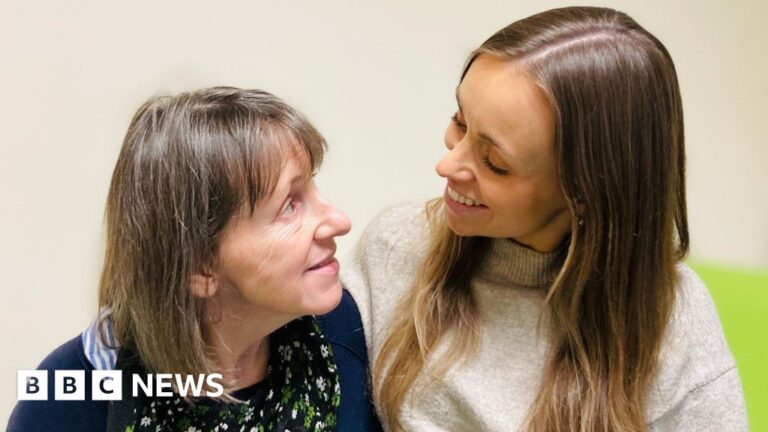It’s 10am, and in a little over two hours, Wayne Hawkins will be dead. The sun is shining on the bungalow where the 80-year-old lives in San Diego, California with his wife of more than five decades, Stella. I knock on the door and meet his children – Emily, 48, and Ashley, 44 – who have spent the last two weeks at their father’s side. Wayne sits in a reclining chair where he spends most of his days. Terminally ill, he is too weak to leave the house. He has invited BBC News to witness his death under California’s assisted dying laws – because if MPs in London vote to legalise the practice in England and Wales, it will allow some terminally ill people here to die in a similar way.
Half an hour after arriving at Wayne’s house, I watch him swallow three anti-nausea tablets, designed to minimise the risk of him vomiting the lethal medication he plans to take shortly. Are you sure this day is your last, I ask him? “I’m all in,” he replies. “I was determined and decided weeks ago – I’ve had no trepidation since then.”
His family ask for one last photo, which I take. As usual, Stella and Wayne are holding hands. Shortly after, Dr Donnie Moore arrives. He has got to know the family over the past few weeks, visiting them on several occasions alongside running his own end-of-life clinic. Under California law, he is what is known as the attending physician who must confirm, in addition to a second doctor, that Wayne is eligible for aid in dying.
When Wayne signals he is ready, the doctor mixes the meds with cherry and pineapple juice to soften the bitter taste – and he hands this pink liquid to Wayne. No one, not even the doctor, knows how long it will take him to die after taking the lethal drugs. Dr Moore explains to me that, in his experience, death usually occurs between 30 minutes and two hours of ingestion, but on one occasion it took 17 hours.
This is the story of how and why Wayne chose to die. And why others have decided not to follow the same course.
We first met the couple a few weeks earlier, when Wayne explained why he was going ahead with the decision to have an assisted death – a controversial measure in other parts of the world. “Some days the pain is almost more than I can handle,” he said. “I just don’t see any merit to dying slow and painfully, hooked up with stuff – intubation, feeding tubes,” he told me. “I want none of it.”
Wayne said he had watched two relatives die “miserable”, “heinous” deaths from heart failure. “I…
Source link




